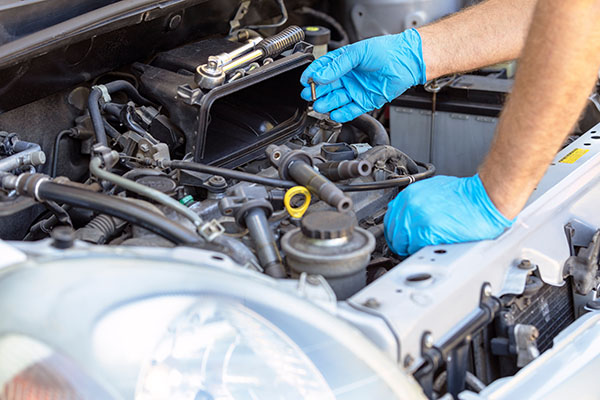
Engines are the heart of any vehicle, and like any vital organ, they require proper care to function effectively. Overheating is one of the most common issues that can plague an engine if its care is ignored - leading to significant damage if not promptly addressed. In today's article, we'll explore the reasons behind engine overheating and provide guidance on what you should do if you find yourself facing this problem.
Causes of Engine Overheating
Understanding why your engine is overheating is the first step toward prevention and immediate action. Here are some of the primary culprits:
Cooling System Failures
The cooling system is designed to regulate your engine's temperature. A malfunction in any component, such as a broken water pump, a stuck thermostat, or a leak in the cooling system, can lead to insufficient coolant flow and cause overheating.
Low Coolant Levels
Coolant levels can drop due to leaks or evaporation over time. Low coolant levels mean less heat is carried away from the engine, resulting in overheating.
Radiator Issues
A clogged or damaged radiator can't effectively dissipate heat, causing the temperature within the engine block to rise dangerously high.
Faulty Sensors or Fans
Non-operational temperature sensors or cooling fans will fail to trigger necessary cooling processes within your vehicle's system.
Extreme Driving Conditions
Towing heavy loads or driving in hot weather can put additional strain on your engine, leading to increased temperatures.
Old Engine Oil
Oil lubricates moving parts and helps cool the engine by carrying away heat. Old or low-quality oil may not perform effectively.
What Should You Do If Your Engine Overheats?
If you notice that your car's temperature gauge is creeping into the red zone or a warning light comes on, take these immediate steps:
Turn Off Your A/C and Turn On Your Heater
This might seem counterintuitive, but doing so transfers heat away from the engine compartment.
Pull Over Safely
As soon as it's safe to do so, pull over and turn off your vehicle. Continuing to drive with an overheated engine can cause irreparable damage.
Check Coolant Levels
Once the engine has cooled down sufficiently (this may take 30 minutes or more), check your coolant level in the overflow tank—never open a hot radiator cap as it could lead to severe burns.
Inspect for Leaks
Look under the vehicle for any signs of coolant leaks which could indicate where a failure may have occurred within the cooling system.
Restart with Caution
If everything seems intact and you've topped off the coolant, you may restart your vehicle and carefully drive to a service station or mechanic for a full inspection.
Seek Professional Help
It's advisable to get professional assistance as soon as possible. A mechanic can diagnose and repair issues that might not be immediately apparent to you.
Preventing Engine Overheating
To avoid future instances of overheating:
- Regularly check coolant levels and top up as necessary.
- Have your cooling system inspected periodically by professionals.
- Replace old coolant according to your vehicle manufacturer's recommendations.
- Monitor your car's temperature gauge while driving.
- Change your oil at recommended intervals.
- During routine maintenance visits, check belts and hoses for wear and tear.
Engine overheating should never be taken lightly - it indicates something is wrong with your vehicle's complex systems. The Pete's, Inc. team understands that and welcomes you to the shop! Come by and we will check your car, ensuring a smooth, efficient ride!